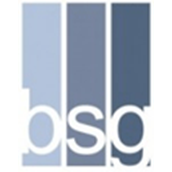It’s generally accepted that when we check into a hotel, we expect standards to be at least as good as those we enjoy in the comfort of our own homes and, depending on the brand, superior levels of comfort.
So now that smart technology runs increasing areas of our lives, it is no surprise that the leisure industry is capitalising on the trend and upscaling hotels’ capabilities to improve the overall customer experience.
And the bonus is that the devices which potentially add comfort and ease of use to our hotel stay via the Internet of Things, are also key to reducing the energy usage of a venue making holidays and business trips more environmentally friendly.
For example, if we can access a room’s heating or air conditioning via a phone app there is no need to leave the AC on throughout the day in order to ensure a pleasant temperature awaits us on our return. We can turn it on remotely at the last minute, saving valuable electricity on a daily basis.
Not only can we check in prior to physical arrival via an app, but virtual hotel receptionists can greet us and hologram butlers attend to our needs once checked in. Or maybe you’d prefer to scan your meal choice using a QR code on the menu app. And if we can access our rooms using a mobile key, few of us will miss the long walk back down the corridor to reception in the early hours when our keycard has been wiped clean and fails to unlock the door so we need it to be reset.
We caught up with Charles Cadbury, CEO of voice and chatbot agency Say It Now about his experience with AI in hospitality and where he thinks it’s going:
‘My first experience with AI in hospitality was creating the first in room voice powered concierge for Marriott Hotels back in 2016. This system allows a smart speaker in a hotel room to answer all the questions you would normally find in the guest directory (e.g. when does the pool open? What time is checkout? What’s the WiFi code?) and would also take requests like “send me another pillow” which went to a system at reception.
‘We saw great engagement from the guests and the hotel staff, all seeing how this could improve the experience for all parties.
‘As background, hotels installed TV’s as standard in all their rooms before everyone had them at home in an effort to deliver a better experience than you have at home. This is even more important in today’s crowded hotel market where the experience is what gets you recommended / rebooked.
‘There is huge potential for natural language assistants to augment the guest experience. We are still at the beginning of the journey and the ‘intelligence’ of these assistants will grow over time so the challenge right now is to manage the expectations of the guest to what is possible by the tech you have at your disposal. Companies who are thinking about this approach from an infrastructure perspective will obviously reap the benefits.’
Smart technology is already particularly impressive in relation to guest experiences of returning clients, recalling TV and radio shows accessed and even pre-setting the alarm to the time of your choice.
Loyalty schemes and feedback systems have blazed a trail for technological advances in the hotel industry. Developers and designers are now constantly coming up with plans to incorporate technological platforms to enhance the functionality of a hotel and enhance the user experience, with an ability to upgrade software for some elements of future refurbishment programmes.
At BSG, we can see a real opportunity here for building and development programmes to place as much emphasis on the technology infrastructure as other bricks and mortar and interior design elements and we’re delighted to bring our experience in high end hotel projects to bear across the hospitality and leisure sector as ‘smart’ and ‘luxury’ become close aligned in location descriptions.
David Thomas, BSG Director said: ‘Of course, the degree of application of these technologies is subject to client/brand influence and always “martialled” via front desk reservations/building management systems to ensure overall energy use limitations.’
Much like the transfer of interest in technology has spread from what were once referred to as ‘geeks’ to the broader population, so the use of smart technology has moved out of the home and office and into the hotel industry as part of mainstream customer expectations to ensure they can still maintain their claim of providing a home from home experience – and more – at the touch of a button. t
